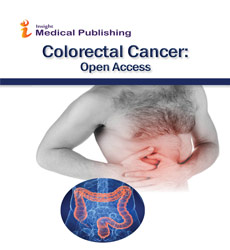Different treatment for acute and chronic bowel obstructions
Zhu Detu
Zhu Detu
Research Assistant Professor,Third Affiliated Hospital, Guangzhou Medical University, China, E-mail: zhuxx01@126
A bowel obstruction is a blockage of the small or large intestine by something other than fecal impaction. The most common cancers that cause bowel obstructions are cancers of the colon, stomach, and ovary. Assessment includes a physical exam and imaging tests. Treatment is different for acute and chronic bowel obstructions.
• Acute bowel obstruction
• Chronic, malignant bowel obstruction
Bowel obstructions (blockages) keep the stool from moving through the small or large intestines. They may be caused by a physical change or by conditions that stop the intestinal muscles from moving normally. The intestine may be partly or completely blocked. Most obstructions occur in the small intestine.
Acute bowel obstruction
Acute bowel obstructions occur suddenly, may have not occurred before, and are not long-lasting.
Treatment may include the following: Fluid replacement therapy: A treatment to get the fluids in the body back to normal amounts. Intravenous (IV) fluids may be given and medicines may be prescribed.
Electrolyte correction: A treatment to get the right amounts of chemicals in the blood, such as sodium, potassium, and chloride. Fluids with electrolytes may be given by infusion.
Blood transfusion: A procedure in which a person is given an infusion of whole blood or parts of blood.
Nasogastric or colorectal tube: A nasogastric tube is inserted through the nose and esophagus into the stomach. A colorectal tube is inserted through the rectum into the colon. This is done to decrease swelling, remove fluid and gas buildup, and relieve pressure.
Surgery: Surgery to relieve the obstruction may be done if it causes serious symptoms that are not relieved by other treatments.
Patients with symptoms that keep getting worse will have follow-up exams to check for signs and symptoms of shock and to make sure the obstruction isn't getting worse.
Chronic, malignant bowel obstruction
Chronic bowel obstructions keep getting worse over time. Patients who have advanced cancer may have chronic bowel obstructions that cannot be removed with surgery. The intestine may be blocked or narrowed in more than one place or the tumor may be too large to remove completely. Treatments include the following:
Surgery: The obstruction is removed to relieve pain and improve the patient's quality of life.
Stent: A metal tube inserted into the intestine to open the area that is blocked.
Gastrostomy tube: A tube inserted through the wall of the abdomen directly into the stomach. The gastrostomy tube can relieve fluid and air build-up in the stomach and allow medications and liquids to be given directly into the stomach by pouring them down the tube. A drainage bag with a valve may also be attached to the gastrostomy tube. When the valve is open, the patient may be able to eat or drink by mouth and the food drains directly into the bag. This gives the patient the experience of tasting the food and keeping the mouth moist. Solid food is avoided because it may block the tubing to the drainage bag.
Medicines: Injections or infusions of medicines for pain, nausea and vomiting, and/or to make the intestines empty. This may be prescribed for patients who cannot be helped with a stent or gastrostomy tube.
Open Access Journals
- Aquaculture & Veterinary Science
- Chemistry & Chemical Sciences
- Clinical Sciences
- Engineering
- General Science
- Genetics & Molecular Biology
- Health Care & Nursing
- Immunology & Microbiology
- Materials Science
- Mathematics & Physics
- Medical Sciences
- Neurology & Psychiatry
- Oncology & Cancer Science
- Pharmaceutical Sciences
